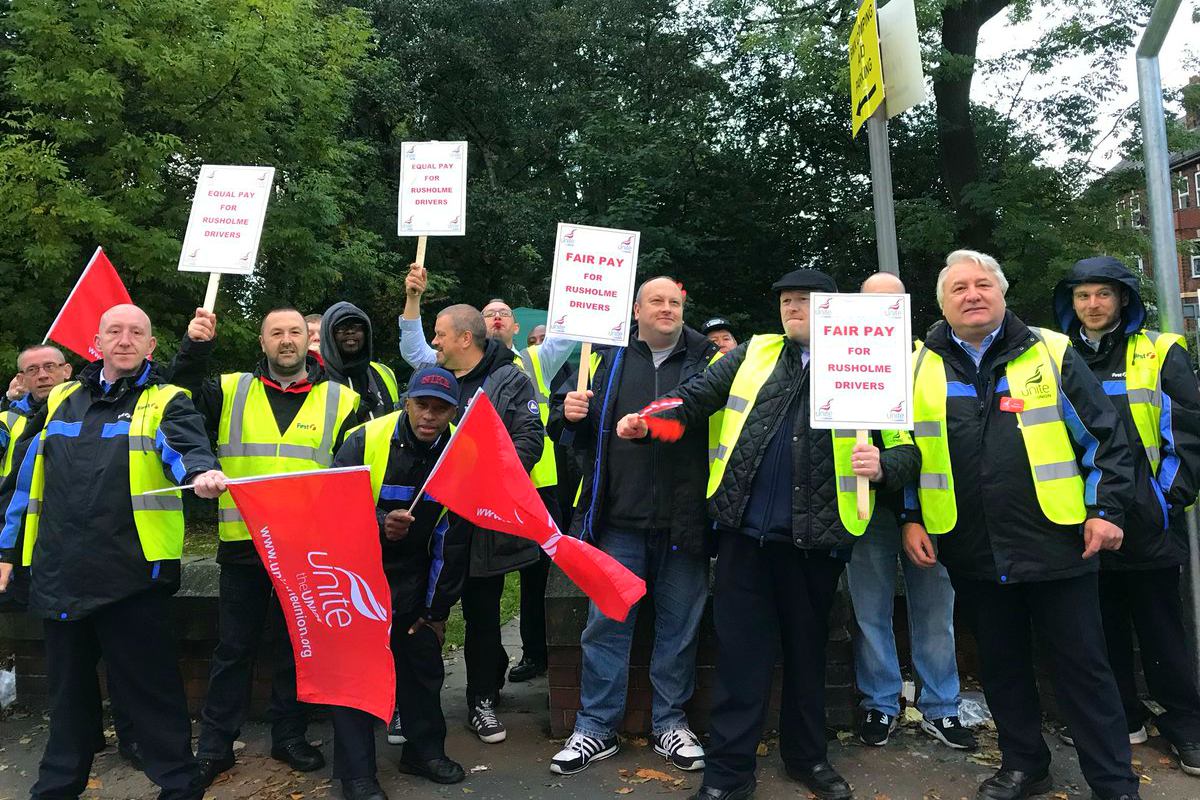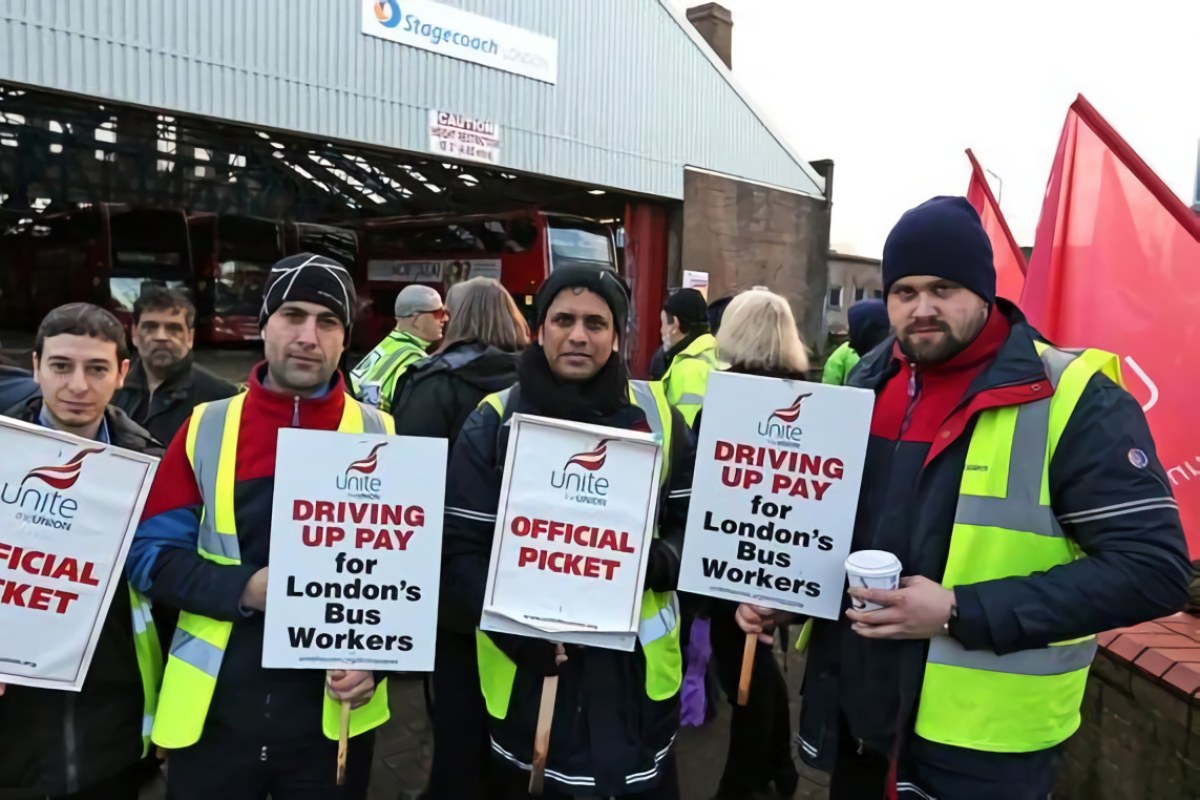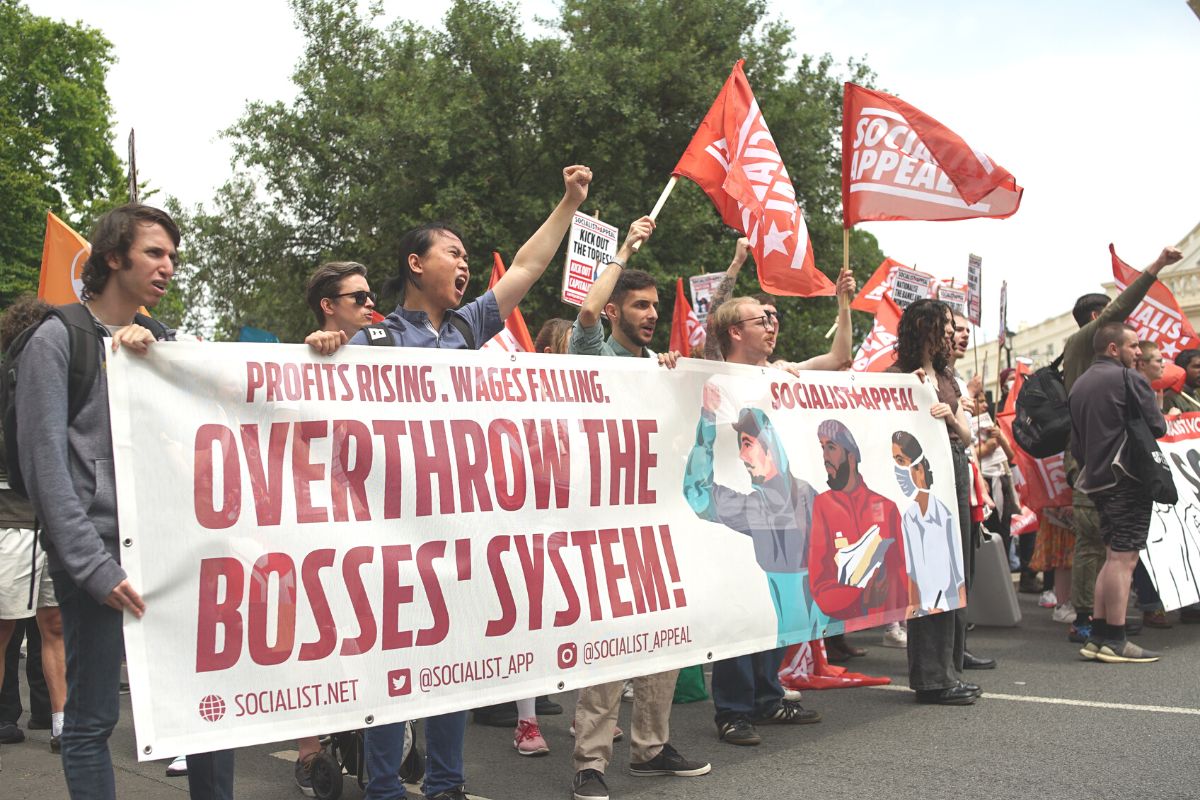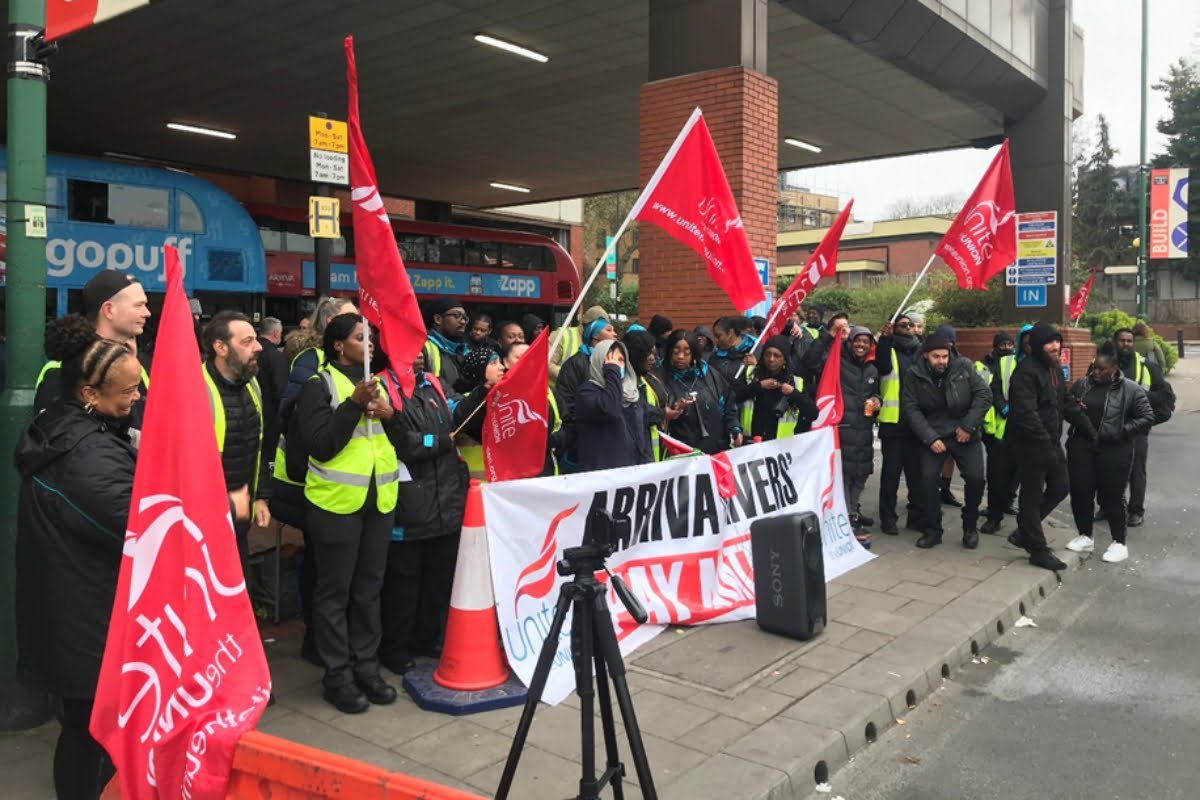Strikes are breaking out across Britain’s bus network, as drivers fight for decent wages and conditions. And recent victories in the North West provide a vital lesson for the whole labour movement: militancy pays.
Earlier this month, on 19 August, almost 2,000 bus workers at Arriva North West, organised in both Unite and GMB, officially secured a victory in their fight for a proper pay rise.
The drivers rejected the bosses initial offer of a real-terms pay cut, and therefore moved to strike. And after 29 days of continuous action, Arriva caved to the workers’ demands.
Strikes were suspended on 17 August, following the announcement of a new, above-inflation pay offer of 11.1%, which will amount to an extra £55 a week per worker, on average.
This was only a day after workers rejected a 9.6% pay offer, confident they could force Arriva to cough up more. If the strike was to end, it was to be on the workers’ terms.
As one Arriva worker told Socialist Appeal: “If you take the bosses offer, you’re letting them trample all over you for years to come.”
This represents an astounding backtrack by the bosses, and a fantastic win for the workers.
This strike serves not only as inspiration, but as a concrete example of the way forward for the whole labour movement, at a time when bus drivers and other workers are moving into action.
BREAKING NEWS: After 29 days of all-out industrial action, Unite the union has today declared the strike at Arriva North West over as 89% of members vote to accept the magnificent pay deal. pic.twitter.com/mugh5mzXBD
— Unite North West (@Unite_NorthWest) August 19, 2022
Solidarity
 Socialist Appeal supporters visited picket lines across Merseyside – in Old Swan, Bootle, and St. Helens – multiple times over the course of the strike.
Socialist Appeal supporters visited picket lines across Merseyside – in Old Swan, Bootle, and St. Helens – multiple times over the course of the strike.
From start to finish, the atmosphere on the picket lines was buzzing. Music played, cars beeped in support, and members of the public regularly visited to drop off food. One driver told us the “solidarity shown by the public was amazing”.
Arriva were desperate to cut across the strike. They cried poverty, saying the company could not afford what the workers had demanded. The workers knew this was an outright lie, and that it was only a matter of time until the bosses paid up.
They also deployed the tried and tested method of divide-and-rule: both within the workforce, and between the public and the drivers.
They attempted to pay off the bigger depots, for example, in order to isolate the smaller ones. The workers saw this cynical attempt from a mile off. As one worker told us: “It is about sticking together.” Workers in all eleven depots therefore stood in solidarity with one another.
As for the public, it was as clear as day for most ordinary workers who was really to blame for the strike – and that was Arriva.
Militancy
 There is no need to speculate as to how the workers won; they told Socialist Appeal exactly how they did it.
There is no need to speculate as to how the workers won; they told Socialist Appeal exactly how they did it.
Strong, bold, militant leadership was a huge factor. “It gives confidence knowing they’re backing you,” one driver told us, discussing the support given by the union to the strikers. Indeed, there was no shortage of praise for Unite’s general secretary Sharon Graham amongst those on the picket lines.
Intransigence and solidarity was no doubt key to this victory: eleven depots standing together and rejecting an offer that did not match their demands by four-to-one.
“We showed that we have backbone,” another workers told us. “[Arriva] gave in because we refused to back down.”
Continuous and coordinated action across unions was equally important. Both GMB and Unite members stood together on the picket lines for 29 days, until victory was secured. Workers told us that it was about staying out “week after week until the bosses gave in”.
This comes off the back of other successful strikes in transport in Merseyside, with Stagecoach workers also beating the bosses. Over in Yorkshire, meanwhile, bus drivers at Arriva also secured a better offer following strike action.
London
 The victory in Merseyside also provides important lessons for bus drivers down in London.
The victory in Merseyside also provides important lessons for bus drivers down in London.
Bus drivers for RATP, which operate services in West and South London, have recently undertaken discontinuous strike action across four days, to protest against the meagre terms of a new proposed contract.
This action included two days over the August bank holiday weekend – an extremely busy time in West London, given this year’s return of the Notting Hill Carnival.
Part of the bosses’ pathetic offer was an initial 3.6% wage rise, plus back pay, a £350 bonus in December, and a further 4.2% next year.
Rightly, this was rejected by the workers, described as “not good enough”, as it represents a real-term pay cut, with inflation running rampant at over 10%.
Picket lines were held at Tolworth, Shepherd’s Bush, Acton, and other garages. Socialist Appeal supporters went down to show support.
Talking to Socialist Appeal, Unite members hit out at their employer – French company RATP (humorously referred to as Rat Pee by the workers), which made recorded profits of £175 million in 2021.
Roger, a Unite rep at Tolworth Garage, described the cynicism of the RATP group:
“It is down to RATP to come up with a better offer…They wanted to bring an offer before this strike. [Unite] asked the company what offer they were going to give, and they turned round and said exactly the same, so [Unite] declined.
“Apparently RATP…said the union declined the meeting…They offered the same amount, so we turned them down and said come back to the table with a better offer, and then we’ll talk.”
Should the RATP drivers not secure a decent pay rise following this action, Unite should learn the lessons from Merseyside, and prepare workers for taking similar action to that of the drivers there: coordinated, all-out action for maximum impact.
Nationalisation
 The derisory contract offer from RATP also comes at a time when TfL (Transport for London) bosses plan to axe 16 routes and make cuts to a further 78. This would affect not just drivers and staff, but all of London’s workers, who rely on these services.
The derisory contract offer from RATP also comes at a time when TfL (Transport for London) bosses plan to axe 16 routes and make cuts to a further 78. This would affect not just drivers and staff, but all of London’s workers, who rely on these services.
In response to these proposed cuts, in early August, bus drivers stormed TfL offices in protest. And many of these same workers are now out on the picket lines, fighting against the attacks on their wages by RATP.
Across the country, the privatisation and deregulation of Britain’s buses has resulted both in poorer services for passengers and worsening conditions for transport workers. This will only increase, as capitalism descends deeper into crisis.
As one driver told us: “It is the private sector and the government that are screwing us. Not just with the buses, but nationwide.”
At a time of resurgence in the class struggle, the trade unions must prepare to make bold demands.
Not only bus drivers, but also other transport workers – organised in the RMT, TSSA, and ASLEF – have taken strike action in recent months.
The next step is to coordinate these struggles across the unions, as was done in Merseyside, in combination with clear socialist demands for a fully-nationalised and integrated public transport system, run under workers’ control.
Only on this basis can we ensure a quality transport system, guaranteeing proper pay and conditions for workers, and access to decent services for all.






